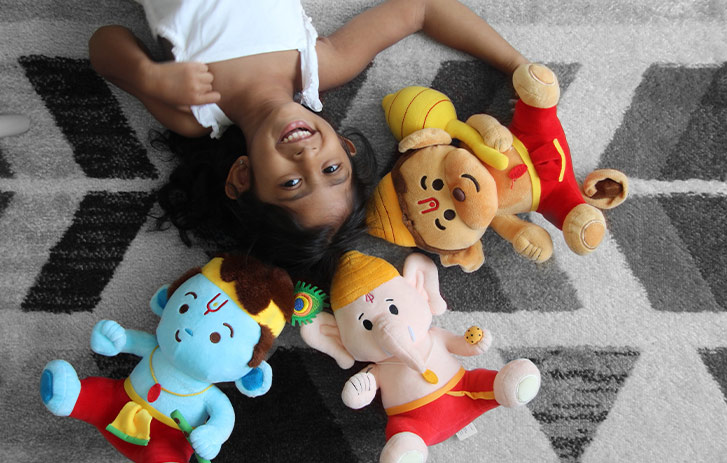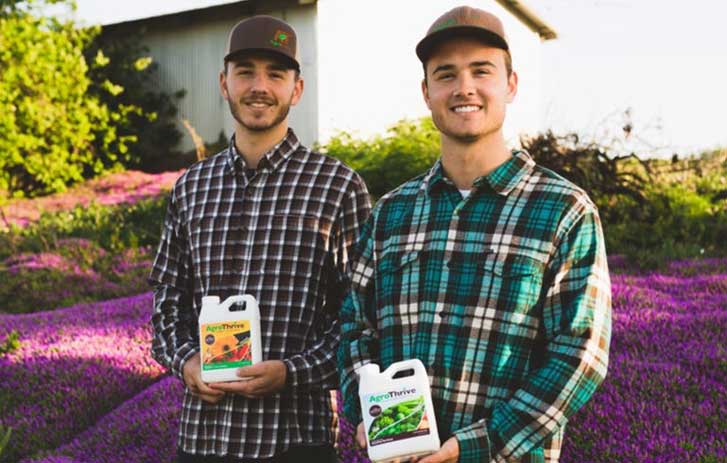Inclusivity benefits business
Community tragedies and increasing calls for social justice and equality in the last year have led to a well-publicized movement across America to aggressively pursue Diversity, Equity, Inclusion, and Opportunity (DEI&O) initiatives. While some businesses may just now be focusing on correcting injustices in the workplace, others founded their business on these very ideals. And their mission continues to be to serve the underserved.
“There was a void in the market,” says Jackie Rodgers, co-founder of Greentop Gifts in Atlanta. “A lot of the category just didn’t have the products that served our demographic.”
And in striving to fulfill unmet market needs, these businesses—all of them winners of the 2021 FedEx Small Business Grant program—are among the many who have flourished.
Inclusivity innovates self-care and dignity
One company leading the charge is New York-based Care+Wear, founded by CEO Chat Razdan, who saw friends and family struggling to keep a sense of self and dignity while undergoing cancer treatments. What began as a specialized sleeve worn to hold an IV catheter in place during cancer treatments soon became a clothing line focused on marrying form with function and dignity. Their designs let wearers look in the mirror and see themselves for who they are—not just patients going through treatment.
Since the success of that first innovation, Care+Wear has gone on to create a dual port access chest hoodie designed in collaboration with Oscar de la Renta, a patient gown designed with Parsons School of Design, a NICU bodysuit designed with the March of Dimes, scrubs designed with Josie Natori, and a post surgical recovery bra for those undergoing mastectomies and reconstructive surgeries.
“From the very beginning we created a comprehensive three-tiered approach to developing our products,” says Chat, “which includes collaborating with patients, clinicians, and designers. Our objective is to ensure that our products are not only ones that patients want to wear and clinicians want to use, but are medically superior with our leading-edge innovation. While we started the company to help loved ones fighting cancer, our ultimate goal is to help each and every person get back to feeling like themselves.”






Since the success of that first innovation, Care+Wear has gone on to create a dual port access chest hoodie designed in collaboration with Oscar de la Renta, a patient gown designed with Parsons School of Design, a NICU bodysuit designed with the March of Dimes, scrubs designed with Josie Natori, and a post surgical recovery bra for those undergoing mastectomies and reconstructive surgeries.
“From the very beginning we created a comprehensive three-tiered approach to developing our products,” says Chat, “which includes collaborating with patients, clinicians, and designers. Our objective is to ensure that our products are not only ones that patients want to wear and clinicians want to use, but are medically superior with our leading-edge innovation. While we started the company to help loved ones fighting cancer, our ultimate goal is to help each and every person get back to feeling like themselves.”
Inclusivity builds cultural foundations
Another company stepping up as a producer of inclusive products is New Jersey-based Modi Toys, a pioneering children’s brand of toys and books rooted in South Asian culture and faith. As immigrants born in India and raised in the U.S., sibling co-founders Avani Modi Sarkar and Viral Modi have a deep sense of connection to their heritage passed down from their parents and grandparents.



But it was the births of each of their daughters that led to the realization that children’s toys and books are severely lacking in diversity of race and religion. With this family-rooted yearning for inclusivity driving their vision, Modi Toys soon became best-sellers with a significant meaning—they are all inspired by Hindu deities, and they sing mantras (prayers) when you squeeze their bellies.
This type of inclusivity is pervasive at Modi Toys. “Even our logo is steeped deep in meaning,” says Avani. “The brackets denote the need for inclusion. It means we’re inserting ourselves into toy bins and bookshelves as early influencers in your children’s development.”
But it was the births of each of their daughters that led to the realization that children’s toys and books are severely lacking in diversity of race and religion. With this family-rooted yearning for inclusivity driving their vision, Modi Toys soon became best-sellers with a significant meaning—they are all inspired by Hindu deities, and they sing mantras (prayers) when you squeeze their bellies.
It didn’t take long for Modi Toys to discover just how influential its toys could be.
Since launching in 2018, the siblings’ mission to create simple yet meaningful toys, books, and kits to help spark curiosity in children about their South Asian heritage has seen their products finding their way into nearly 20,000 homes—including those of Mindy Kaling and Food Network’s Chef Maneet Chauhan.
This type of inclusivity is pervasive at Modi Toys. “Even our logo is steeped deep in meaning,” says Avani. “The brackets denote the need for inclusion. It means we’re inserting ourselves into toy bins and bookshelves as early influencers in your children’s development.”
It didn’t take long for Modi Toys to discover just how influential its toys could be.
Since launching in 2018, the siblings’ mission to create simple yet meaningful toys, books, and kits to help spark curiosity in children about their South Asian heritage has seen their products finding their way into nearly 20,000 homes—including those of Mindy Kaling and Food Network’s Chef Maneet Chauhan.
Inclusivity heals outside and in
Also creating inclusion with every product they sell is Ohio-based Browndages. Founded by husband-and-wife duo Rashid Mahdi and Intisar Bashir, Browndages helps people “Heal in Silence” by offering bandages in different shades of brown.
“We are honored to offer a product that helps others feel included.”
The idea behind Browndages is part of a larger movement of companies and products that are actively removing the long-standing depiction of “flesh-toned” as strictly beige.
“We started this company after realizing that the ‘flesh-toned’ bandages that other companies offered weren't the tone of our flesh or billions of others in the world,” says Rashid. “We saw a lack of inclusion in the market and wanted to do something about it.”
But the company’s compassion for their audience didn’t stop there.
“We also noticed that other bandage companies only had images of princesses and superheroes for their kid products,” says Intisar. “We decided to create a kids’ line showing children in obtainable professions such as a pilot, chef, veterinarian, etc.”
The response was almost immediate.






“We started this company after realizing that the ‘flesh-toned’ bandages that other companies offered weren't the tone of our flesh or billions of others in the world,” says Rashid. “We saw a lack of inclusion in the market and wanted to do something about it.”
But the company’s compassion for their audience didn’t stop there.
“We also noticed that other bandage companies only had images of princesses and superheroes for their kid products,” says Intisar. “We decided to create a kids’ line showing children in obtainable professions such as a pilot, chef, veterinarian, etc.”
The response was almost immediate.
“We are honored to offer a product that helps others feel included. We love reading the reviews, or better yet, seeing the emotions of our customers when they wear our Browndages for the first time. Who knew that something as simple as a bandage that matches your skin tone could be so impactful!”
Inclusivity connects communities
In 2016, Shaun and Jackie Rodgers began making Christmas products for their then 2-year-old son that represented their African-American heritage. The need in the market was glaring, and with the support from their collegiate communities they were able to jump-start Greentop Gifts—which brings diversity to all kinds of celebrations with apparel, home décor, and stationery.



One of their earliest successful marketing campaigns leaned into their network at Historically Black Colleges and Universities (HBCUs)—Shaun graduated from Morehouse College and Jackie from Clark Atlanta University. They hired students at various HBCU homecomings to wear company T-shirts, pass out buttons, and create brand awareness.
Duke University—where Shaun earned his MBA—was also a big supporter and fan of the business early on, and helped Jackie and Shaun spread the word to its entire alumni network.
“It helped us understand that we’ve got a business here. We’ve got something that people really want. So it was huge for us to be able to leverage that network.”
One of their earliest successful marketing campaigns leaned into their network at Historically Black Colleges and Universities (HBCUs)—Shaun graduated from Morehouse College and Jackie from Clark Atlanta University. They hired students at various HBCU homecomings to wear company T-shirts, pass out buttons, and create brand awareness.
Duke University—where Shaun earned his MBA—was also a big supporter and fan of the business early on, and helped Jackie and Shaun spread the word to its entire alumni network.
“It helped us understand that we’ve got a business here. We’ve got something that people really want. So it was huge for us to be able to leverage that network.”
“It helped us understand that we’ve got a business here. We’ve got something that people really want. So it was huge for us to be able to leverage that network.”
How can inclusivity benefit your business and community?
Time and again, small businesses have shown that inclusivity isn’t just a strong moral position to take—it’s a benefit to their bottom line. Underserved communities are everywhere. Doing good for them can be good for your business too. Learn more about all of the winners of the 2021 FedEx Small Business Grant program and use their stories as inspiration to grow your business and meet the needs of your entire community while doing it.
Related reading

AgroThrive: Together we thrive
Learn about 2023 Small Business Grant winner, AgroThrive.
Read article
Meet the 2017 winners
Read the inspiring stories of the companies that won the 2017 FedEx Small Business Grant program.
Read article